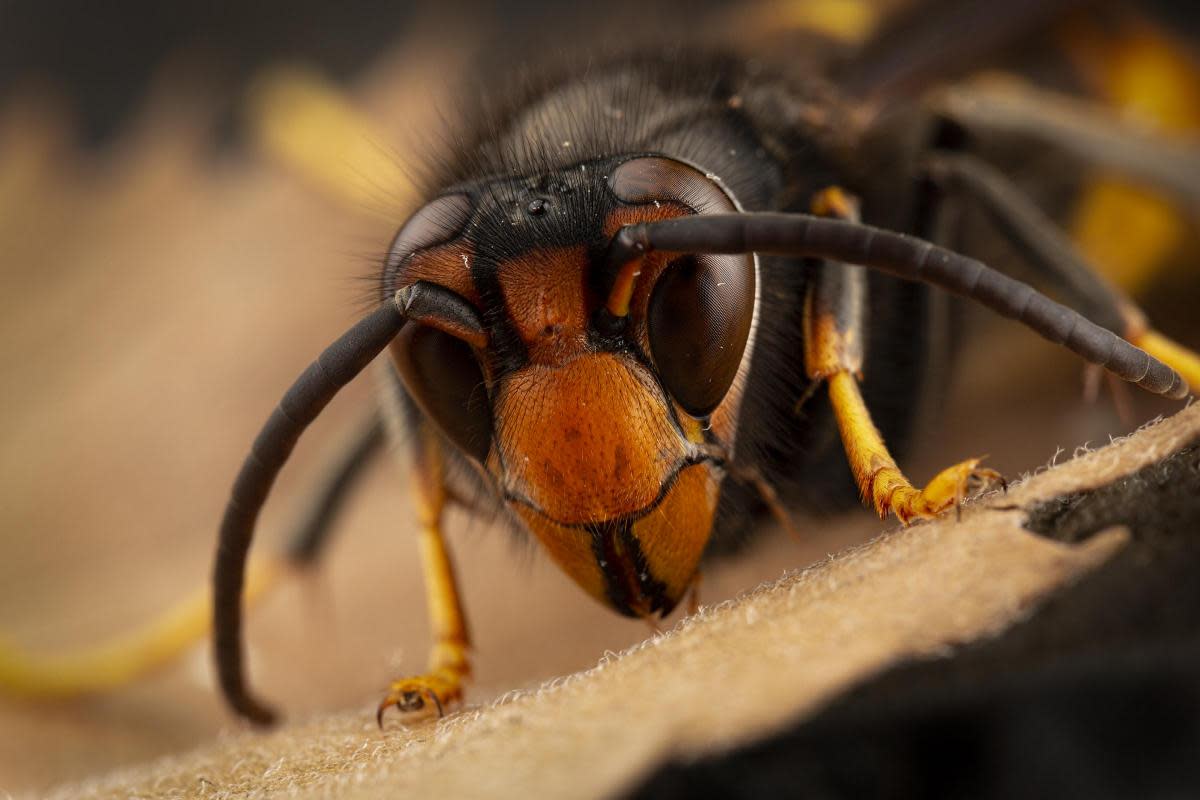How to spot 'aggressive' Asian Hornet which could pose a 'real threat' to city

AN "aggressive" hornet not native to the UK could pose a real threat to Worcester if it is found.
Worcestershire Wildlife Trust warned the Asian hornet can pose a real threat to wildlife in the city, and residents must report it.
The hornet, more formally known as vespa velutina, is a more aggressive species than the UK's native wasps and bees.
The threat has caused the Government’s National Bee Unit to find, identify and destroy Asian hornet's nests across Britain, but it needs residents to help identify if any appear in Worcester.
Steve Bloomfield, senior conservation officer at Worcestershire Wildlife Trust, explained, “Asian hornets feed their young on invertebrates, so the arrival of this non-native species in the UK poses a threat to our pollinators and other species.
“Britain’s wildlife has evolved side-by-side with our native hornets for centuries but the arrival of Asian hornets, whose populations are able to expand more rapidly than those of our native hornets, pose a real threat.
“Our native hornets are rather docile gentle giants, unlikely to sting unless really threatened.
"Whilst Asian hornets won’t go out of their way to sting us, they are more aggressive than our native species.
"It’s really important that people understand the difference between the two so that they don’t inadvertently persecute the former and do report the latter.”
How to spot an Asian hornet?
Asian hornets are between 2.5cm and 3cm long, which is a little smaller than a native hornet but bigger than wasps.
They are very dark, with dark brown or black heads and bodies, and they have just a segment of orangey-yellow towards the end of their abdomen.
Their legs are black at the top and bright yellow from about halfway down.
In contrast, European hornets are much more chestnut-coloured.
They have an orangey head, chestnut thorax, and abdomen that is orangey-yellow and black-striped. Their legs are dark.
Worcestershire Wildlife Trust has encouraged people to take a photo of anything they think is an Asian hornet rather than kill it, as they like to mimic hornets and wasps.

 Yahoo News
Yahoo News 
